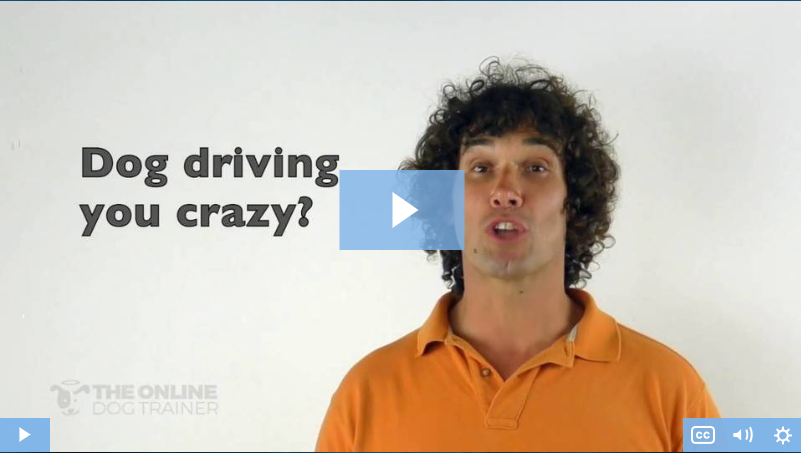“My Puppy Cries When I Leave – What Can I Do?”
It a frequent question that many of us have faced and to be honest, there’s not always a simple answer.
The truth is that there are countless reasons your puppy could be acting up.
Things like stress, boredom, anxiety, among other things are just a few of the common reasons that your puppy could be singing the blues.
But in this post, I’m going to break down the many reasons puppies cry, and more importantly, give you the ultimate tools needed to stop any unnecessary crying habits once and for all.
These are all demonstrated in the video below…
Watch The Video For 5 Step-By-Step Exercises To Quickly & Easily Stop Your Puppy’s Obsessive Crying Habit…
(video will open in a new window)
It’s no surprise that crying puppies can cause huge problems for their owner.
Maybe your neighbors have started to complain that your adorable, yet noisy, bundle of fluff is disrupting their peace.
Or maybe your new puppy is causing you to have sleepless nights as you listen to their consistent, never-ending howling.
But whatever the situation, there are actions you can take that will resolve the situation.
And in the end, not only will your neighbors thank you, but your puppy will too.
So, it is time to turn this pup’s frown upside down…
Why Do Puppies Cry
Just for a moment, I’d like you to put yourself in the shoes, or rather paws, of your new family member.
How would you feel if you were forced into an unfamiliar environment where the people who were crucial to your survival (that’s you) seemingly abandoned you?
You would probably feel a tad bit nervous, to say the least.
And this is exactly what your puppy feels every time you leave.
Think about it…
In the first few weeks of bringing your puppy home, everything is still new and scary.
So it’s only natural that your puppy is trying to grab someone’s attention by crying.
In his eyes, it’s essential to ensure survival.
And although your puppy will learn in time that your home is safe, there are courses of action you can take in the early stage to speed up the learning process and help ease any anxiety your pooch feels.
These can include…
Related: 5 Step-By-Step Exercises To Quickly & Easily Stop Your Puppy’s Obsessive Crying
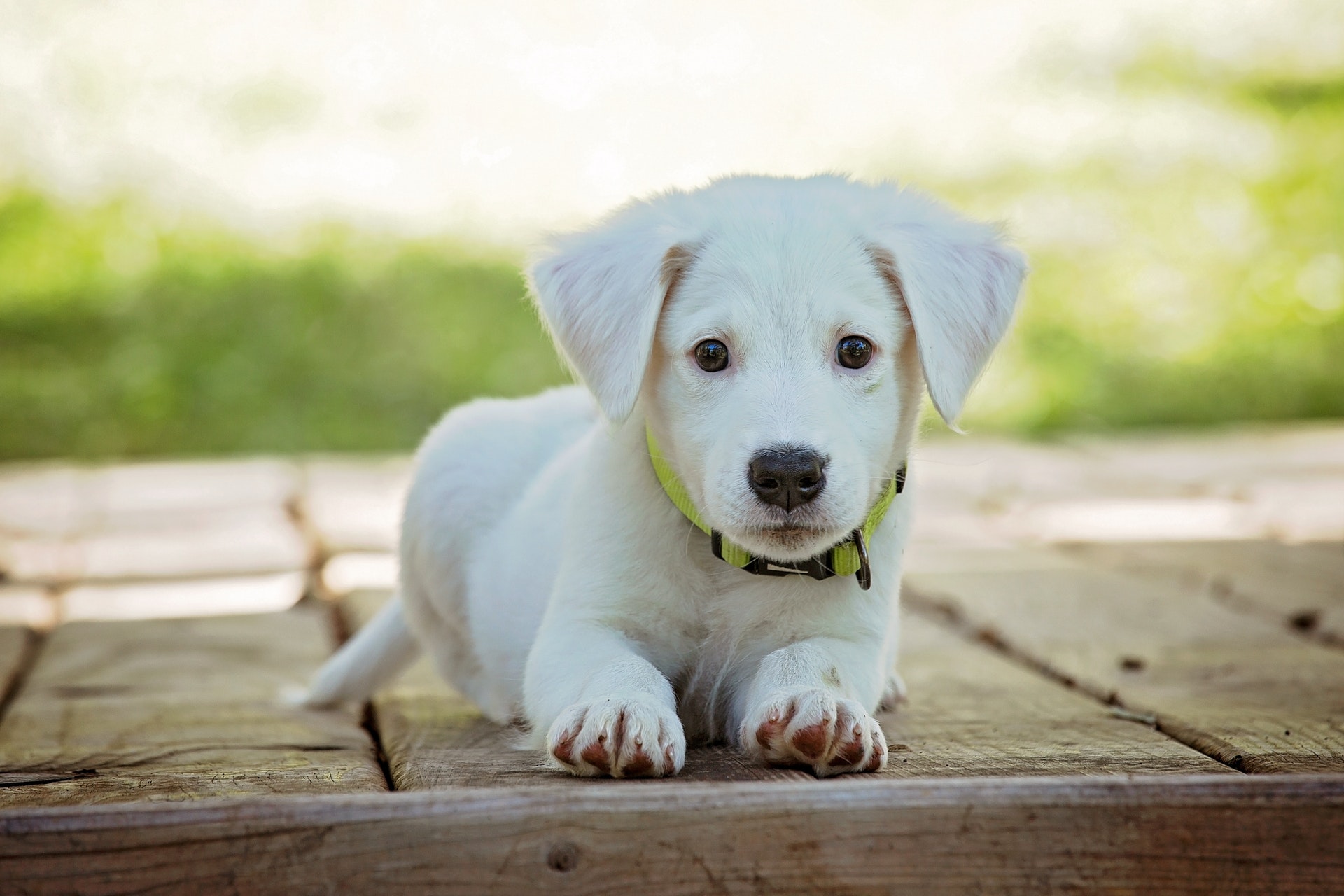
Not making a big scene when you leave
When you have a new puppy, it is highly tempting to give him extra affection before you leave.
I mean, who could resist those adorable puppy eyes?
However, it’s highly important that you practice some restraint and that your behavior appears completely natural whenever you leave the house.
It can be tough but if you give in to the practice of saying big goodbyes, all this will do is heighten your puppy’s awareness that you have left.
A heightened awareness will only increase your pup’s anxiety and, consequently, increase the likelihood of crying.
Introducing your pup to the concept of being left alone
Prior to being in your care, it’s likely that your puppy consistently enjoyed the company of other dogs.
Therefore, the concept of being alone is completely foreign to your pooch.
Now, you can get your new puppy comfortable with the idea of being left alone, as well as giving him confidence by slowly introducing him to periods of being alone.
So start by leaving your puppy alone for very short periods of time, returning only when your puppy shows signs of calmness.
Buying your new member of the family a crate
Given that your puppy cries when you disappear and that dogs are generally social in nature, it might be surprising to learn that your puppy will come to appreciate its own space in time.
This space is referred to as a denning in canine lingo.
Essentially, it’s a place that is highly familiar and, in turn, comforting to your pooch.
Think about it…
Your puppy has just been taken away from his den following adoption,
Not only will this leave him confused, but it’s a very scary experience which can often result in anxiety.
So what can you do?
Well, the best thing you can do is help your pooch to establish a new den in your home.
The easiest way to do this is crate train your pup.
Crating is a great way of establishing a new safe place for your puppy to relax and unwind.
Fill it with some personal favorites including soft blankets and interesting chew toys and you’d be surprised at just how different your puppy will act in his new environment.
Just be aware that you should not leave your puppy in a crate for lengthy periods of time as it can cause negative emotional states in puppies.
Related: 5 Step-By-Step Exercises To Quickly & Easily Stop Your Puppy’s Obsessive Crying
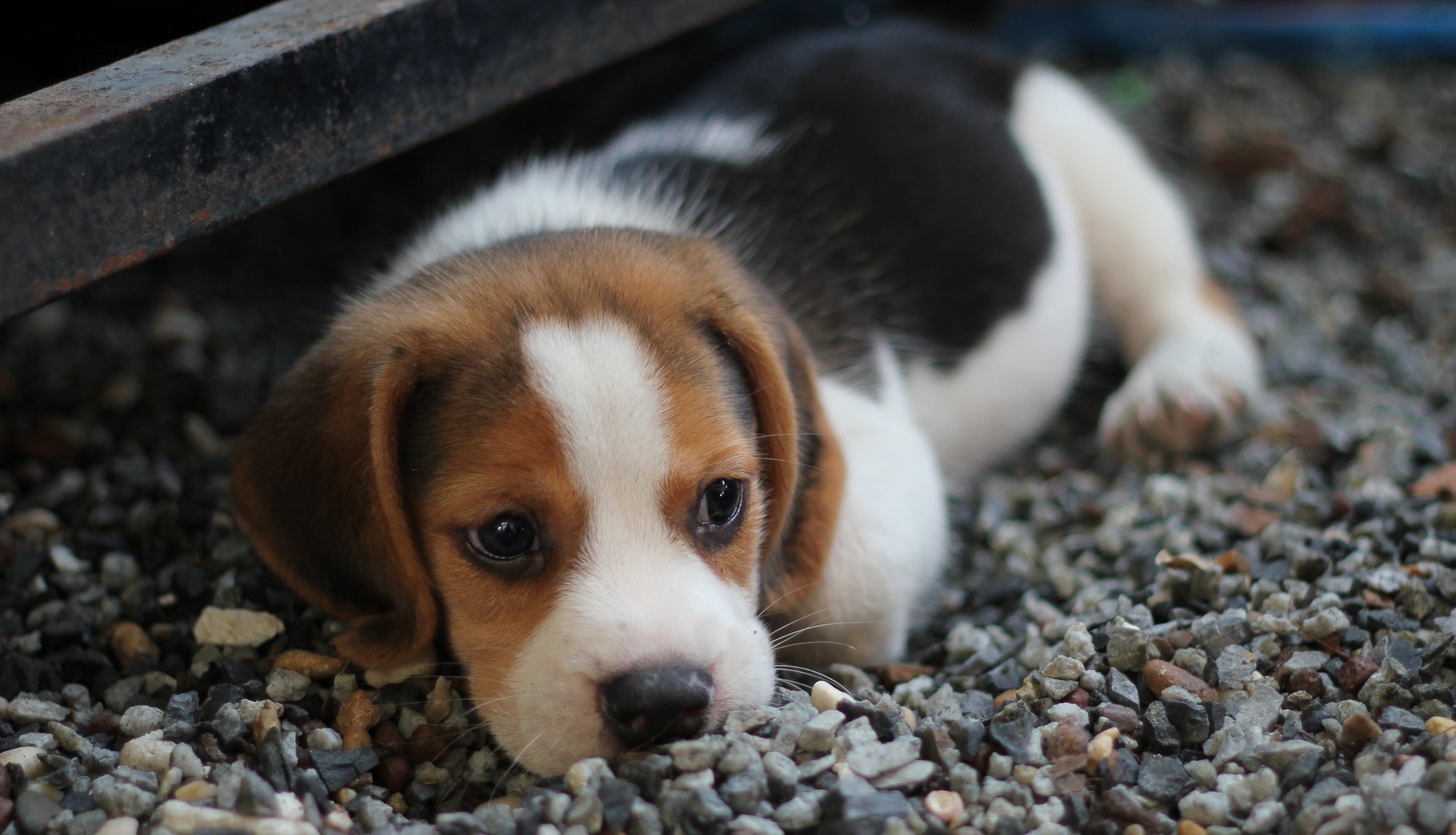
Playing your puppy gentle music
Like most people, your new bundle of fluff can be emotionally affected by music.
Playing gentle music can make your pup feel more relaxed.
Investing in an Adaptil Diffuser
An Adaptil Diffuser is loaded with dog appeasing pheromones.
These pheromones are present in mother dogs and will leave your puppy feeling safe and comforted.
In addition to day time barking, your new puppy might express its concerns when left alone at night by engaging in a bit of moonlight howling.
The strategies for dealing with barking will help somewhat with the night time howling by reinforcing the idea that your home is secure and that you will return.
However, the way to deal with the moonlight howling specifically is to tire your little whippersnapper out before bedtime.
So instead of letting your puppy snooze during the evening, be sure to keep him active by engaging it in play.
The goal is to tire your puppy out so that falling asleep is the only option as night descends.
My Puppy Cries When I Leave – Emotional Triggers
Discomfort
Sometimes crying is your pooch’s way of saying, “I need the toilet really bad.”
Alternatively, your puppy might be trying to communicate that it’s parched or ravenous.
Thus, like a baby, wailing can be your dog’s way of communicating its physical needs.
Ways of avoiding crying stemming from these issues include…
#1 – Avoiding snacks and drinks before shut-eye
To decrease the frequency of trips to the loo during the night, make sure you avoid giving your new family member snacks and drinks close to shut-eye.
A young puppy only has a small bladder so the likelihood is that you will have to get up at least once during the night to let him do its business.
#2 – Having someone attend to your puppy’s needs when you have left the house
Do not leave your puppy alone for lengthy periods of time.
If you do, the likelihood is that you will come back to find your puppy has made your home its new toileting area.
And trust me, no one wants to return from a hard day’s labor to find that.
The solution…
Make sure someone comes to the house to let your pooch empty its bladder.
Boredom
Imagine how you would feel if you were left alone in a room with nothing to entertain you.
No doubt, you would be bored to tears and clawing at the walls with frustration.
So if you suspect your puppy is bored, giving him a toy, especially a treat dispensing one, can help.
Just be sure to watch your puppy’s waistline!
Related: 5 Step-By-Step Exercises To Quickly & Easily Stop Your Puppy’s Obsessive Crying
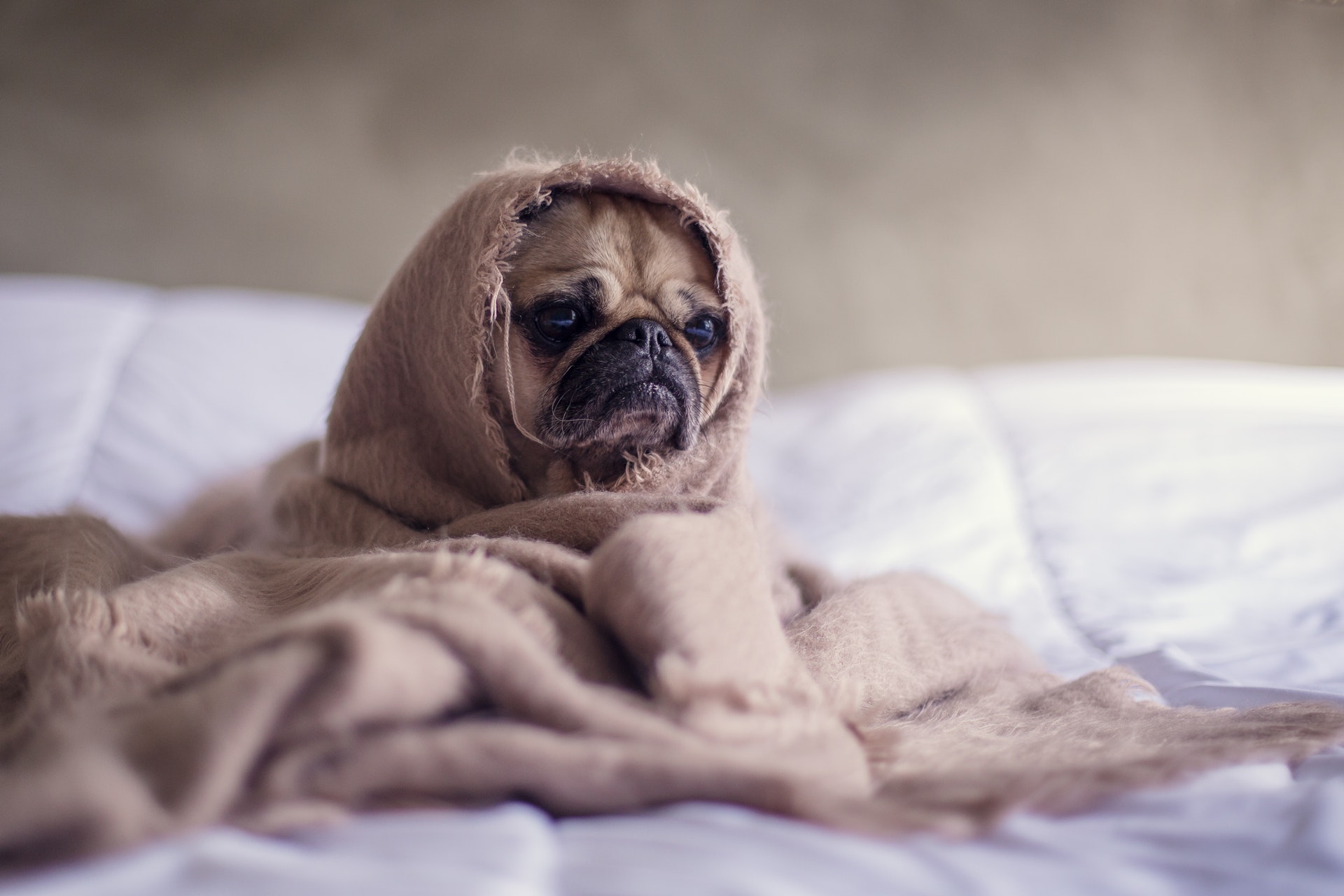
Fear
Many things can cause your puppy to become fearful when left alone.
After all, it’s not uncommon for your puppy to feel stressed in an unfamiliar environment.
You need to understand that in the early stages everything is new to your puppy.
Different sights, sounds, and unfamiliar faces can be enough to fill even the calmest of puppies with dread.
Now, in most cases, the fear will subside on its own.
But until your puppy gets used to his new environment the following strategies can be useful…
- Playing soothing music
- Purchasing an Adaptil Diffuser
- Making your puppy tired via play or exercise so that it snoozes
- Removing any distressing objects
Loneliness
Some dogs just aren’t made for being alone.
After all, dogs are innately social since they are pack animals.
So it’s only natural that some pooches will feel unbearable loneliness if they’re left alone for too long.
Now don’t panic just yet as there are a few tried and tested strategies to prevent your beloved pup acting up.
These include…
#1 – Investing in a dog sitter or walker
If you know you’re going to be leaving your puppy home alone for lengthy time periods, consider investing in a dog sitter or walker for your pooch.
In addition to having human company to alleviate its loneliness, he might even make a new canine friend in the process.
#2 – Adopting another dog or puppy
A big decision but if your pup absolutely despises alone time and is wallowing in loneliness, another possibility is to adopt another puppy.
Investing in another puppy will not only resolve any loneliness your pup is feeling but it should also resolve a lot of other negative emotions it might experience when left alone (e.g. fear).
Just be sure the pooches are compatible.
Sadness
The most obvious reason for tears is sadness.
Your puppy may be feeling down in the dumps if it used to enjoy more of your company than it is currently experiencing.
This might happen, for example, if you have recently gone back to work.
You can help your pup to feel on top of the world again by ensuring someone engages the puppy in things it loves (e.g. playing, exercising) when you are not around.
Related: 5 Step-By-Step Exercises To Quickly & Easily Stop Your Puppy’s Obsessive Crying
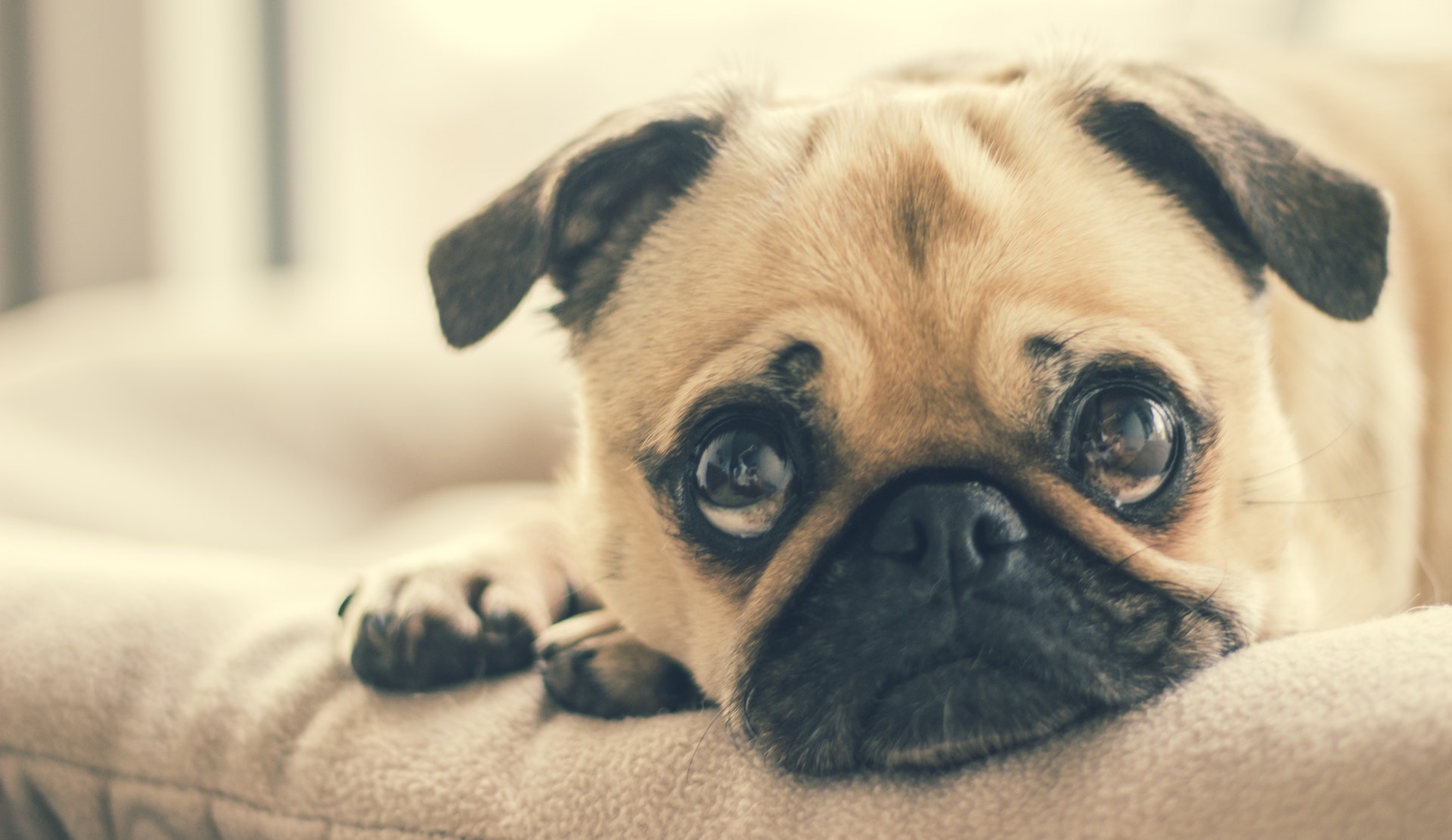
When To Seek Help When Your Puppy Cries
Physical Issues
Dogs communicate pain or discomfort to their owners by crying.
So if your furry family member simply won’t stop crying no matter what, you need to have him checked over by a vet and note any accompanying signs or symptoms.
Depression
If you have tried multiple strategies to put a smile on your pups face without luck, your puppy might have depression.
A vet can prescribe an antidepressant for your pooch in this case.
Common symptoms to look out for include…
- Inactivity
- Altered sleeping and eating habits
- Withdrawal
Separation Anxiety
For some puppy’s, their owners leaving sends them into a panic frenzy.
When a puppy suffers a severe panic response every time it is parted from its owner, this is known as separation anxiety.
It is characterized by constant crying, destructive behavior, and often toileting issues.
So if you have tried the strategies outlined above to reduce any anxiety your pooch is experiencing without avail, then it might be time to consult a behavior professional or a vet.
Final Thoughts
If there is one thing to take away from this post that it’s this…
Your puppy is trying to tell you something when he cries.
Sometimes it’s obvious but sometimes it’s not, and leaving your puppy alone can trigger an array of negative emotions, such as anxiety, discomfort, boredom, loneliness, and sadness.
It’s also worth remembering that recently adopted puppies are particularly prone to anxiety when left alone.
So stop your puppy from crying, it’s first important to work out the root cause of your pup’s unhappiness and apply a relevant strategy.
And if you suspect your puppy has a medical problem, depression, or separation anxiety, consult a professional.
Anyway, do you have any tips or training methods to calm a crying puppy? Let me know in the comments below…
Related: 5 Step-By-Step Exercises To Quickly & Easily Stop Your Puppy’s Obsessive Crying
